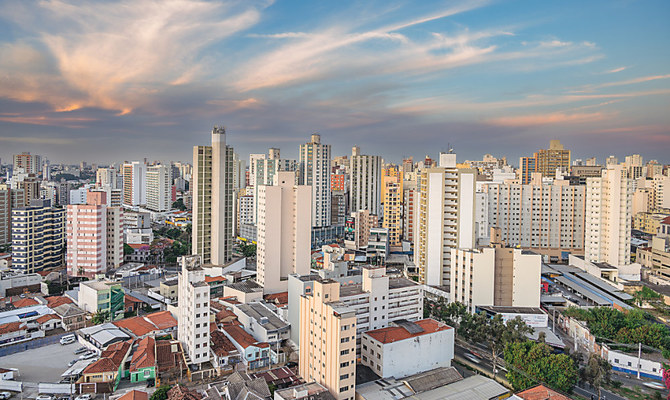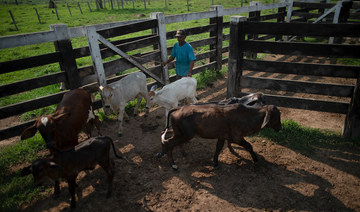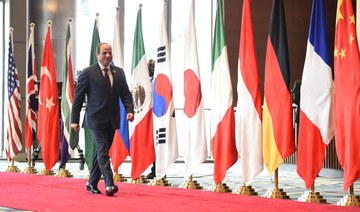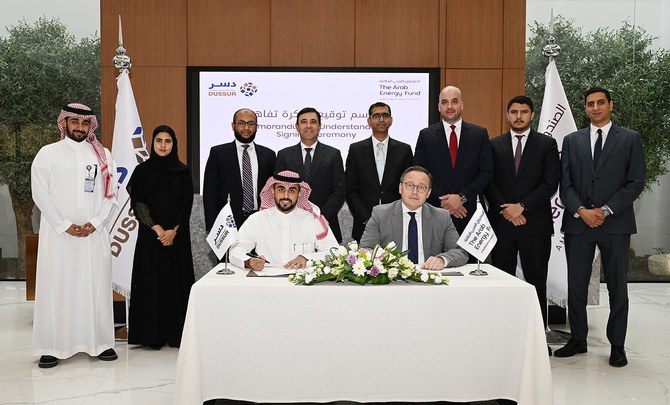SÃO PAULO: As the biggest exporter of halal protein in the world, Brazil is now aiming to attract Muslim tourists, a group that generates an income of $238 billion every year.
Currently, the number of visitors to the South American country coming from Muslim-majority countries is rather low. São Paulo, Brazil’s major economic hub, for instance, welcomed only 21,500 tourists from Arab nations last year.
People like Ali Zoghbi want to transform that reality. The secretary-general of the International Halal Academy, which offers training on halal products and services, told Arab News that both São Paulo state and the Federal District, where Brazil’s capital city Brasilia is located, are making efforts to become Muslim-friendly tourist destinations.
“We believe that São Paulo has several advantages when it comes to welcoming Muslims tourists, so we began to work along with the state’s tourism secretary in order to develop a program to qualify hotels, restaurants, and transportation companies to receive Muslims,” said Zoghbi, who is also the vice-president of halal certifier Fambras Halal.
São Paulo has a highly diverse population, including a century-old Muslim community, and several mosques. It’s the major gateway for Brazil and the most important destination for businessmen from the Islamic world.
“We developed a Muslim-friendly tourist guide, which includes information concerning the region’s mosques, consulates of Muslim-majority countries, and tourist attractions,” Ana Clemente, the state’s tourism coordinator, told Arab News.
Clemente affirmed that the state’s goal is to improve the quality of the Muslim tourists’ experience in São Paulo by providing useful information and training the hotels’ and restaurants’ workers to adequately welcome them.
“The idea is also to reduce the potential prejudice against Muslims,” she said.
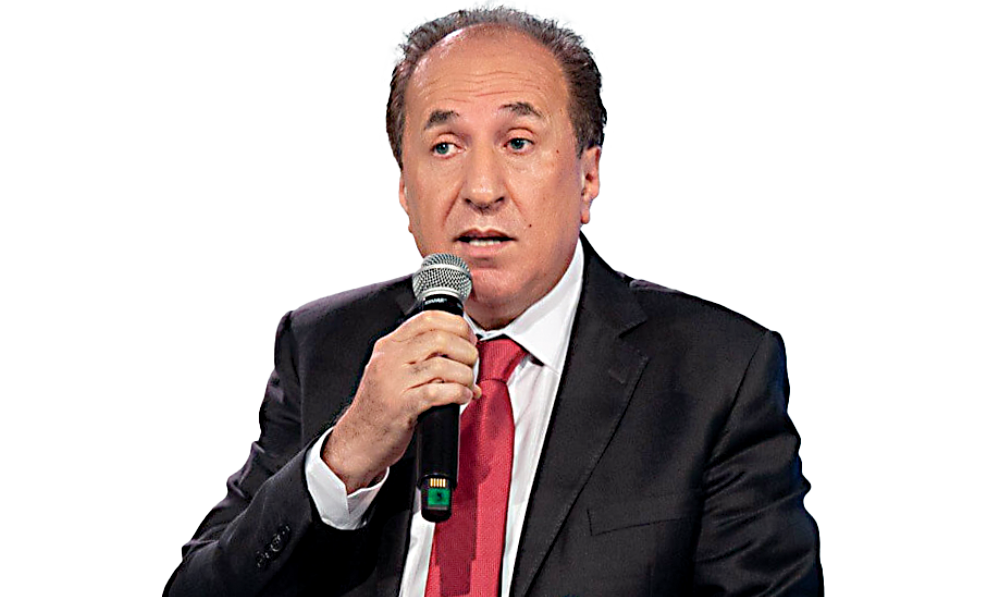
We believe that São Paulo has several advantages when it comes to welcoming Muslims tourists, so we began to work along with the state’s tourism secretary in order to develop a program to qualify hotels, restaurants, and transportation companies to receive Muslims.
Ali Zoghbi, VP of Fambras Halal
Today, US, European, Chilean, and Argentinian tourists make up the majority of visitors arriving in São Paulo every year.
“But there are several attractions for Muslim tourists in São Paulo’s metropolitan area and in the countryside as well,” she added.
Since the program began, a leading hotel in the city of São Paulo has obtained a Muslim-friendly certificate and two others have been working on it.
“The necessary adjustments are not so demanding, but a few details are important, like including in the rooms stickers showing the qibla, taking out alcohol from rooms for Muslim guests, and segregating all pork from the other items on the menu,” Zoghbi explained.
Implementing shower hoses in bathrooms for ablution, offering prayer rugs and making available copies of the Holy Qur’an are also relevant measures, he added.
“The great challenge is to make the guest feel at home. We have to know the differences and understand who those people are and what their needs are,” Zoghbi said.
After São Paulo started the program in 2023, the Federal District government also announced the intention of investing in Muslim-friend tourism. An agreement was signed with the International Hala Academy in December.
“Like São Paulo, Brasilia is a city that welcomes people from different cultural backgrounds. We’re now beginning to offer workshops to hotels, travel agencies, and transportation companies,” Zoghbi said. In the next phase, businesses interested in getting a Muslim-friendly certificate will be trained and audited by Fambras.
Zoghbi sees the effort to attract Islamic tourism as something similar to the first export of Brazilian halal beef to the Arab world in 1976.

“The first sale was irrelevant, only a small amount of beef. Today, Brazil is the world’s largest producer of halal protein,” he compared.
He wants to redirect part of the flux of Muslims that visit major European capitals and the US to Brazil, a country famous for its many natural wonders.
“But those destinations have been prepared to welcome Muslims for more time than us,” he said.
Lebanese-born Brazilian entrepreneur Karen Hayek agrees. She told Arab News that until recently the South American country was not ready to deal with fully observant Muslims. That’s why she decided to launch a travel agency focused on tourists from Gulf nations.
“Our idea was to prepare Brazil to welcome Arabs. Today we have a list of restaurants and hotels which can receive those guests,” she affirmed.
HaLatina, Hayek’s company, works to mediate cultural and language barriers that Arab tourists face in Brazil. The idea emerged after Hayek realized that many Arab businessmen came to Brazil alone to take part in meetings and then faced the long journey back to the Gulf without properly getting to know the country.
FASTFACTS
• São Paulo has a highly diverse population, including a century-old Muslim community, and several mosques. It’s the major gateway for Brazil and the most important destination for businessmen from the Islamic world.
• Both São Paulo state and the Federal District, where Brazil’s capital city Brasilia is located, are making efforts to become Muslim-friendly tourist destinations.
• Zoghbi sees the effort to attract Islamic tourism as something similar to the first export of Brazilian halal beef to the Arab world in 1976.
“They were afraid of Brazil and believed that there was nothing for them here. So, our suggestion for them is: Come to Brazil with your family and we will take care of all of you,” she affirmed.
While São Paulo is the main business destination, Rio de Janeiro, Foz do Iguaçu – where the gigantic Iguazu Falls are located – and the Amazon are the main tourist spots. All of them can be fully enjoyed by Arabs and Muslims, Hayek said.
The city of Foz do Iguaçu is a significant exception. With a huge Muslim community, it has been prepared as a halal destination over the past year. But the rest of the country still poses some challenges.
“Of course, we still have a low number of restaurants where Muslim families can have privacy and women can take off their scarves to eat, for instance. But little by little the market will adapt itself to attend to those needs,” she affirmed.
The lack of halal restaurants can be compensated in most of Brazil by the omnipresent offer of fish and seafood, Hayek added.
“We’re already advertising in the Arab world and are 100 percent prepared to welcome Muslim tourists,” she concluded.



